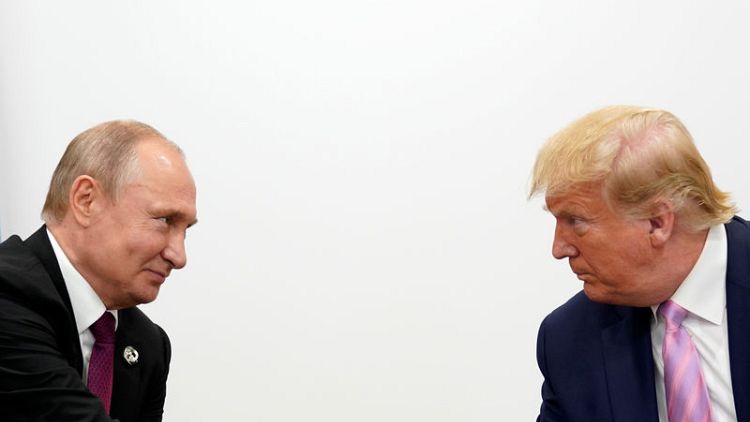MOSCOW (Reuters) - Russian President Vladimir Putin said he had "sympathised" with Donald Trump before the 2016 presidential election that swept Trump to power because of his desire to restore normal relations with Russia.
In an interview with U.S. filmmaker Oliver Stone dated June 19 and published on the Kremlin web site on Friday, Putin also said that any alleged Russian hackers were still not able to influence the vote's outcome.
The Russian president reiterated that he had not and would not interfere in U.S. elections.
The Moscow-Washington ties have long been strained by U.S. intelligence and law enforcement findings - denied by the Kremlin - that Russia tried to influence the results of the 2016 U.S. presidential election to boost Trump's chances of winning the White House.
U.S. intelligence and law enforcement agencies say Russia used disinformation and other tactics to support Trump's 2016 campaign. Putin has denied it.
"And whichever our bloggers - I don't know who works there in the Internet - had expressed their point of view on the situation in the USA in this or that way, this had not been able to play a decisive role. This is nonsense," Putin said.
"But we had sympathised with him (Trump), because he said that he wanted to restore normal relations with Russia. What's bad in this? And of course, we couldn't unwelcome such a position."
(Reporting by Vladimir Soldatkin; Editing by Susan Thomas)


